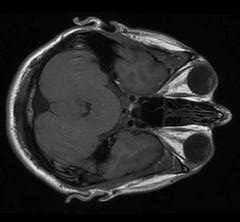10 years
I went to see the cool local neurologist and he is always a pleasure to hang out with. He checked me out and saw no change since when he first saw me at the end of 2003, though I did inform him that my left hand has progressed noticably but not alarmingly. Their tests and observations are necessarily gross and cannot pick up subtleties. That's OK.
He said that neck strength (which he measures by having you push your forehead against his hand), is a critical indicator of breathing strength. For his purposes they can be thought of as the same thing. As with my other major muscles, my neck strength is quite good right now.
I told him that I knew that the question was unfair, but I wanted hiim to guess, given my current rate of progress, how long I would still be walking, and how long I would still be a live.
"Ten years," he said.
"Ten years still walking or ten years still not dead?"
"Both."
"And who knows what can happen in 10 years, right?"
"Right."
We both know this is an impossible thing to responsibily predict, but I appreciate his taking a swing at it. And I don't think he was just trying to give me hope. My goal had been to still be walking five years from now and still alive 10 years from now. I'm not going to raise my goal based on what he said. Maybe when I reach it I can readjust it.
Which brings us again to the topic of the guilt I might feel for progressing so slowly when many other people with ALS face the sudden and rapid decline of their bodies, some of them as rapidly as within one year. Most people die within five years of diagnosis. It's a small percentage who get to 10 years.
But I have to remind myself, other people who have ALS would not want me to feel guilty. They want to live, and they want me to live too.
I went to see the cool local neurologist and he is always a pleasure to hang out with. He checked me out and saw no change since when he first saw me at the end of 2003, though I did inform him that my left hand has progressed noticably but not alarmingly. Their tests and observations are necessarily gross and cannot pick up subtleties. That's OK.
He said that neck strength (which he measures by having you push your forehead against his hand), is a critical indicator of breathing strength. For his purposes they can be thought of as the same thing. As with my other major muscles, my neck strength is quite good right now.
I told him that I knew that the question was unfair, but I wanted hiim to guess, given my current rate of progress, how long I would still be walking, and how long I would still be a live.
"Ten years," he said.
"Ten years still walking or ten years still not dead?"
"Both."
"And who knows what can happen in 10 years, right?"
"Right."
We both know this is an impossible thing to responsibily predict, but I appreciate his taking a swing at it. And I don't think he was just trying to give me hope. My goal had been to still be walking five years from now and still alive 10 years from now. I'm not going to raise my goal based on what he said. Maybe when I reach it I can readjust it.
Which brings us again to the topic of the guilt I might feel for progressing so slowly when many other people with ALS face the sudden and rapid decline of their bodies, some of them as rapidly as within one year. Most people die within five years of diagnosis. It's a small percentage who get to 10 years.
But I have to remind myself, other people who have ALS would not want me to feel guilty. They want to live, and they want me to live too.


<< Home